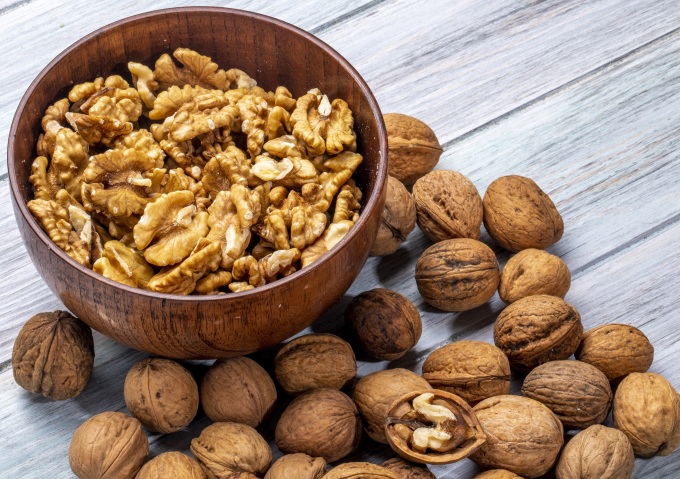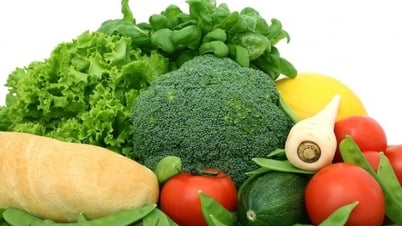Low-fat or non-fat milk, beans, nuts, brown rice… are healthy sources of carbohydrates (carbs) that help control diabetes.
People with diabetes who consume a lot of carbs (sugars and starches) can have high blood sugar levels and difficulty controlling their blood sugar. People with diabetes should choose whole, unprocessed carbs instead of refined carbs and simple sugars. Whole carbs are rich in fiber, which lowers blood sugar levels, reduces the risk of heart disease, and is beneficial in managing diabetes. Here are 6 healthy carb sources that keep blood sugar levels balanced.
Low fat milk
Milk and dairy products are a good source of protein and calcium. According to the National Institutes of Health , protein provides the energy your muscles and metabolism need. Calcium is an important mineral for heart, muscle, and bone health. People with diabetes should choose low-fat or fat-free milk instead of whole milk. Whole milk is high in saturated fat, which increases insulin resistance, increasing the risk of heart disease and inflammation. One cup of whole milk contains 4.5 grams of saturated fat, 149 calories, and 12 grams of carbs, while one cup of 1% milk has only 1.5 grams of saturated fat, 102 calories, and 12 grams of carbs.
Bean
Beans (black beans, red beans, chickpeas...) are rich in fiber, which has a positive impact on overall health and body weight. Fiber slows down digestion, helping you feel full longer, reducing cravings and losing weight. Obesity is one of the causes of insulin resistance and metabolic diseases such as diabetes and cardiovascular disease.
According to the Academy of Nutrition and Dietetics, men should eat 25 grams and women should eat 38 grams of fiber per day. Beans are a beneficial food that can help both men and women reach this goal. For example, 100 grams of cooked black beans have 109 calories, 7 grams of protein, 8 grams of fiber and 20 grams of carbs. However, people with diabetes should eat in moderation so that they do not consume too many carbs.
Nuts
According to a 2019 study by the Harvard TH Chan School of Public Health (USA), people with type 2 diabetes who eat 5 servings of nuts (walnuts, almonds, cashews, pistachios, etc.) per week have a 17% lower risk of heart disease than people who do not eat nuts or eat few nuts. Diabetics who eat a lot of nuts also have a 27% lower risk of early death than those who consume less.

Walnuts can improve blood sugar control, lower blood pressure, and reduce inflammation. Photo: Freepik
Nuts are rich in unsaturated fats, fiber, vitamins like E, and minerals like folate, calcium, and magnesium. Therefore, they can improve blood sugar control, lower blood pressure, reduce inflammation, and improve artery function. However, people with diabetes should only eat them in moderation because nuts are high in calories.
Whole grain starch
Starches from whole grains such as barley, oats, quinoa, whole wheat pasta or brown rice are rich in nutrients and fiber. These starches are digested slowly, slowing the rate at which carbohydrates are converted into sugar and absorbed into the bloodstream, thereby slowing the rise in blood sugar levels.
A 2018 study by the Danish Cancer Society found that consuming each serving of whole grains per day can reduce the risk of type 2 diabetes by 11% for men and 7% for women. According to the US Department of Agriculture , a slice of whole grain bread contains about 11 grams of carbs, less than white bread (14 grams per slice).
Fruit
Fruits are rich in vitamins, fiber, and antioxidants that can fight disease. According to research from Oxford University (UK), diabetics who eat fresh fruit every day have a lower risk of death and progression of vascular complications than those who rarely or never eat fruit. However, some fruits also contain a lot of sugar, so diabetics need to consume them in moderation. Eat about 3/4 cup of fresh fruit at a time, evenly distributed throughout the day to help balance blood sugar.
Berries (strawberries, blueberries, raspberries, grapes...) are good for diabetics because they have less sugar and carbs than other fruits.
Non-starchy vegetables
People with diabetes should devote half of their meals to non-starchy vegetables to increase many health-beneficial compounds. For example, cruciferous vegetables such as broccoli, cauliflower, and kale contain glucosinolates...
Mai Cat (According to Everyday Health )
Source link




























![[Photo] Central Propaganda and Mass Mobilization Department meets with exemplary journalists](https://vphoto.vietnam.vn/thumb/1200x675/vietnam/resource/IMAGE/2025/6/21/9509840458074c03a5831541450d39f8)
























![[Maritime News] Wan Hai Lines invests $150 million to buy 48,000 containers](https://vphoto.vietnam.vn/thumb/402x226/vietnam/resource/IMAGE/2025/6/20/c945a62aff624b4bb5c25e67e9bcc1cb)








































Comment (0)